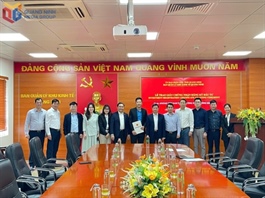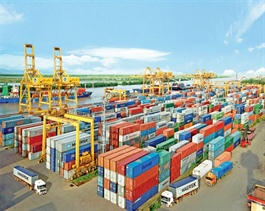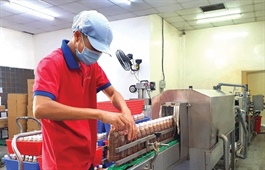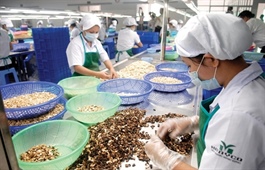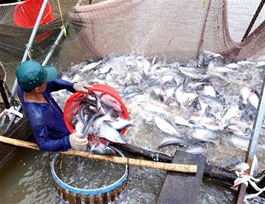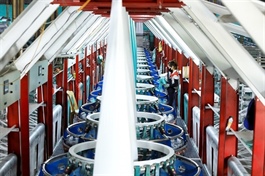Fightback intensifies to protect brands June 7-8, 2025 vietnam
Fightback intensifies to protect brands June 7-8, 2025 vietnam
Faced with the widespread problem of fake goods infiltrating various sectors, traceability plays a key role in ensuring transparency, protecting consumers, and preserving brand name reputation.
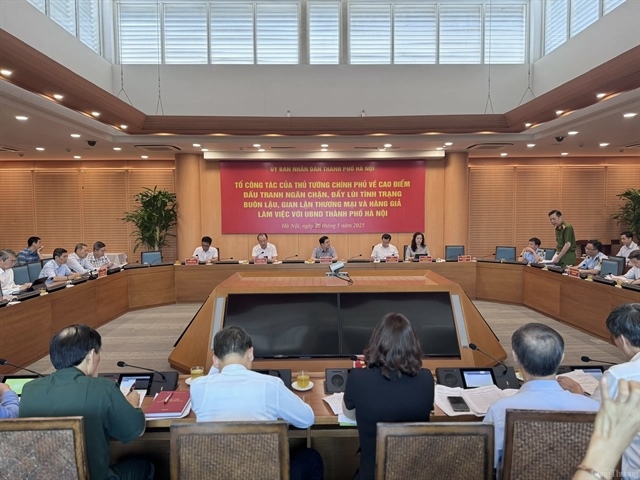
Authorised personnel inspect a warehouse. VNA/VNS Photo |
Faced with the widespread problem of counterfeit goods infiltrating various sectors from food and pharmaceuticals to consumer products, traceability plays a key role in ensuring transparency, protecting consumers, preserving brand name reputation and enhancing the effectiveness of State management.
It is a crucial tool for identifying, preventing and thoroughly addressing acts of commercial fraud, contributing to a healthier and more transparent business environment.
The spread of counterfeit and substandard goods has become increasingly sophisticated, systematic and large-scale, say experts.
Notably, counterfeiting no longer stops at copying designs, but now includes falsifying information, data and traceability codes. As a result, traditional methods such as simple labels and barcodes are no longer sufficient to counter these complex tactics and are showing weakness in terms of confirming origins and legitimacy.
Phạm Văn Thọ, chairman of the board of directors of Việt Nam Anti-Counterfeiting Technology JSC (ACTIV), said that applying digital technology to product and goods traceability was one of the essential factors that would help businesses enhance competitiveness and meet integration and export standards.

Authorised personnel inspect a warehouse. VNA/VNS Photo |
For Việt Nam, in order to maintain the position of its goods and expand to new markets, implementing traceability was extremely important, he said. Therefore, businesses must meet strict market demands. Only when they could bring their products transparently to consumers would customers continue to support them.
Beyond traceability, criteria such as 'green', 'sustainable', and the ability to respond swiftly to media crises are increasingly becoming key indicators for evaluating a brand.
Even a minor incident, if not promptly addressed within a few hours, can escalate into a major crisis.
According to experts, when fake products are discovered, many businesses no longer wait for authorities to act but proactively implement authentication measures, ranging from anti-counterfeit labels integrated with blockchain technology to personalised QR codes for each product batch.
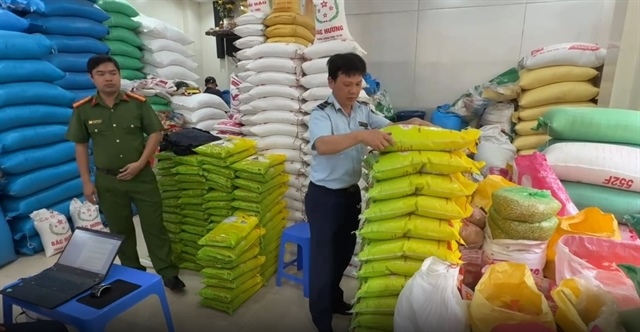
Authorised personnel inspect a warehouse. VNA/VNS Photo |
These tools not only enable consumers to verify product origins, but also provide transparent data throughout the entire supply chain.
However, technology can only be effective when consumers actively engage with it, say experts. Therefore, businesses can not stop at merely 'sticking on a label', they must also strengthen communication efforts, guiding customers to understand and embrace this as an essential part of the modern shopping experience.
At the same time, companies must be transparent about their raw materials and production processes to build greater trust in the traceability system.
Fighting fake goods cannot be a solitary battle. Representatives from many companies emphasised during a recent discussion the importance of collaboration between regulatory agencies, businesses and consumers in protecting Vietnamese brands.
"A national brand is not merely an external symbol, but a crystallisation of the country's economic strength, culture, history, and people," said Lê Xuân Bá, former director of the Central Institute for Economic Management (CIEM).
For a national brand to be truly trusted and to gain momentum in the market place, a comprehensive strategy was required, one that ensures product quality, reasonable pricing policies, effective marketing and, most importantly, investment in people - the core of sustainable development.
Sharing his views on the role of brand security amid today’s increasingly fierce competition, Nguyễn Quốc Thịnh, PhD, lecturer at the Thuongmai University (TMU) and member of the expert panel of the National Brand Programme, said that a brand was not merely a company’s image, impression or reputation, but a crucial identifier for customers to recognise products.
“Customer trust is built on access to accurate and reliable information from the business. Therefore, providing and verifying information becomes a key factor in protecting brand image,” he said.
"In a competitive market, a brand lives and grows in the minds of consumers, requiring businesses to create a distinct identity and deeply understand their customers," he said.
"This is an essential foundation for building a successful and sustainable strategy." Thịnh pointed out that the immediate challenge was counterfeit goods, but the bigger issue was intellectual property infringement.
He introduced the concept of brand security, which consists of three critical elements: stability, sustainability and risk control.
The three essential activities to ensure brand security are: intellectual property protection, defending the brand from external infringements and preventing brand deterioration.
A brand must not only be attractive but also be safeguarded through transparent information and a solid security strategy. This, he said, was the decisive competitive edge to win the hearts of consumers.
Taking strong action
The Government had a full focus in the fight against fake goods, smuggling and commercial fraud, said Trần Hữu Linh, director of the Việt Nam Directorate of Market Surveillance, Ministry of Industry and Trade, at a recent working session with Nguyễn Sinh Nhật Tân, deputy minister of Industry and Trade.
Linh urged the relevant forces to take real actions, focusing on three main areas of violation including fake goods, intellectual property infringement and violations in e-commerce.
Notably, peak times required strong and decisive action, said Linh.
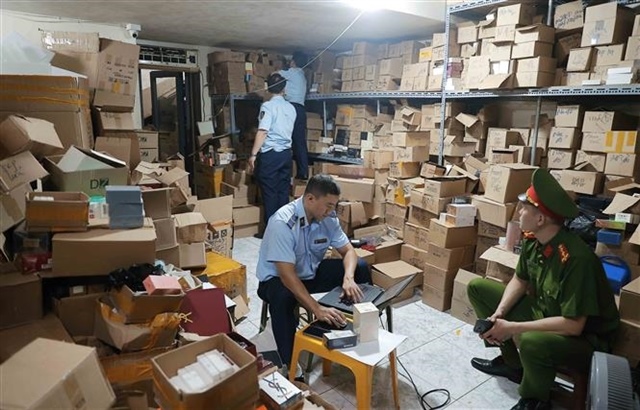
Authorised personnel inspect a warehouse. VNA/VNS Photo |
Recently, the police force has handled and arrested many KOLs (Key Opinion Leaders) and celebrities involved in selling counterfeit goods on e-commerce platforms. This determination and strict approach have contributed to preventing and deterring further violations.
Linh also urged the relevant forces, including customs, market management, the police and health authorities, to enhance their cooperation and ensure that no area would be left uncontrolled, even during the process of merging and streamlining public agencies.
Additionally, he recommended that these forces develop specific inspection plans and focus on hot spots, key products and important areas.
To rectify and ultimately eliminate the production and trade of counterfeit goods and smuggled products, Deputy Minister Tân suggested that, during this peak period, relevant authorities in the city must act quickly, decisively, accurately and strictly, targeting smuggling and counterfeit goods warehouses to clean up the market.
He directed the relevant forces to closely follow and rigorously implement the instructions from the Government and the Prime Minister in the fight against counterfeit goods.
Tân said that the fight against smuggling, commercial fraud and counterfeit goods "will not stop here, but will be carried out regularly, continuously and with more flexible, proactive and creative solutions", and a "long-term discipline in market management and the fight against counterfeit products should be established".
- 10:17 07/06/2025







